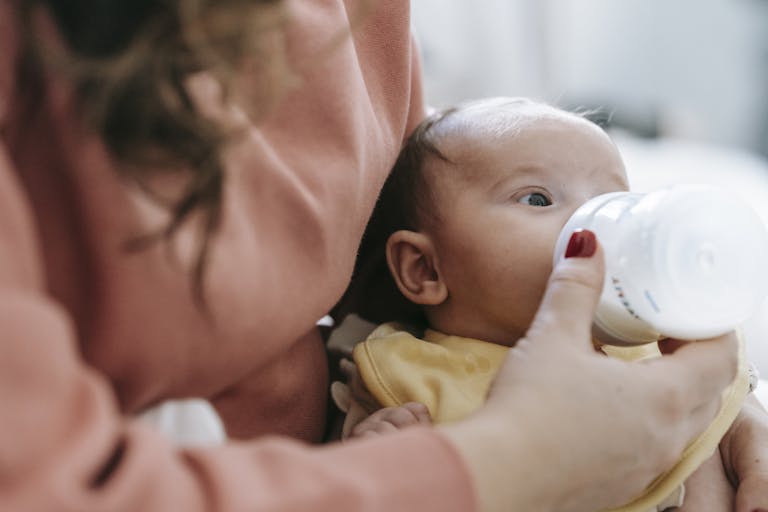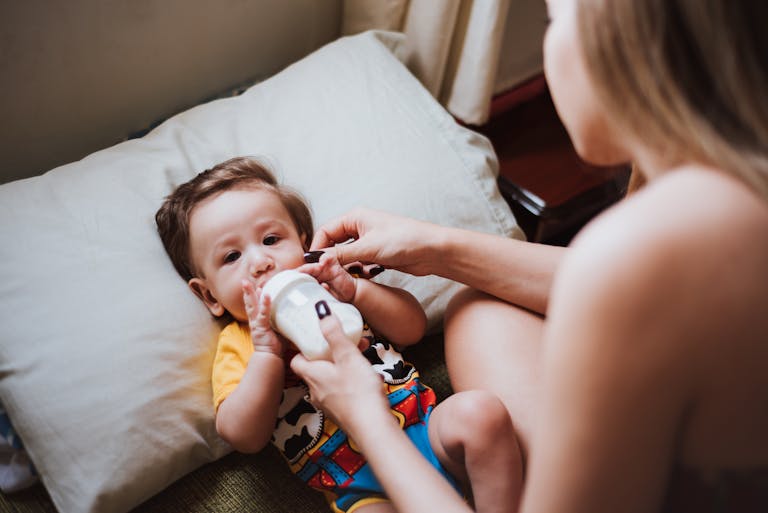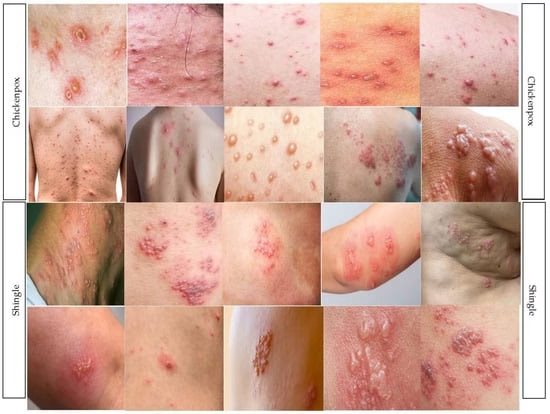When is a Fever Dangerous for an Infant: Critical Signs
A fever becomes dangerous for an infant if it surpasses 100.4°F (38°C) when measured rectally for a baby less than 3 months old. For older infants and toddlers, a fever above 102.2°F (39°C) warrants medical attention.
Fevers signal the body’s fight against infection, acting as a common defense mechanism. Recognizing when a fever is a cause for concern, particularly in young infants, is crucial. Parents and caregivers should know the appropriate steps to take, ensuring the safety and health of their child.
While a mild elevation in temperature might simply mean the immune system is at work, high fevers in infants can be symptomatic of more serious issues. Understanding the thermal thresholds and response tactics can be vital for a child’s well-being. It’s essential for guardians to monitor temperature readings correctly and consult healthcare professionals when necessary.
The Basics Of Infant Fever
A fever in infants is a sign of their body fighting an infection. A normal temperature for babies typically ranges from 97°F (36.1°C) to 100.3°F (37.9°C) when measured rectally. Temperature readings above this range may indicate a fever. It is crucial for parents to know that a rectal thermometer provides the most accurate readings for infants.
An infant’s temperature can be considered elevated if it exceeds 100.4°F (38°C). This is the threshold at which parents should monitor their baby closely and consider contacting healthcare providers.
Fever In Infants: When To Worry
Infants under 3 months require a doctor’s visit if the fever exceeds 100.4°F (38°C). For babies 3 to 6 months old, the threshold is 101°F (38.3°C). Parents should monitor for signs like refusal to eat, trouble breathing, unusual irritability, or lethargy.
Babies 6 months and older can tolerate a fever up to 102°F (38.9°C). Yet, a doctor’s advice becomes essential if the fever goes beyond 102.2°F (39°C) or lasts more than 24 hours. In all age groups, look for symptoms such as a rash, vomiting, diarrhea, or a seizure, as these require immediate medical attention.
Temperature Readings: Methods And Accuracy
Use a digital thermometer for accurate results. Rectal thermometers provide the best readings for infants. Ensure the thermometer tip is clean. Gently insert it into the baby’s rectum. Wait for the beep to read the temperature. Never leave your infant unattended with a thermometer.
Ear thermometers aren’t reliable for babies under six months. Temporal artery thermometers work well for babies three months and older. Oral readings are not suitable for infants.
| Thermometer Type | Age Suitability | Reliability |
|---|---|---|
| Rectal | 0-3 years | High |
| Temporal Artery | >3 months | Moderate to High |
| Ear | >6 months | Variable |
Home Management Of Infant Fever
Determine the infant’s temperature using a reliable thermometer. If the fever is over 100.4°F (38°C), contact your pediatrician.
Keep the room at a comfortable temperature. Ensure the infant is hydrated by offering regular breast milk or formula.
Use lightweight clothing to prevent overheating. Cool compresses can be gently applied to the infant’s forehead.
Lukewarm sponge baths may help lower the fever. Avoid cold water, as it can cause shivering and raise body temperature.
Natural remedies like herbal infusions are not recommended without consulting a healthcare provider.
Medical Intervention For Febrile Infants
Call the pediatrician if an infant under 3 months has a fever over 100.4°F. Seek immediate care for symptoms like difficulty breathing, poor feeding, or a rash. Alertness changes or extreme irritability also warrant a quick call.
At the hospital, expect tests and monitoring. They may check blood, urine, or spinal fluid. Your infant might get a chest X-ray if pneumonia is a concern. The main goal is to find the fever’s cause and treat it.
Prevention And Vaccination
Vaccines play a pivotal role in warding off fever-causing diseases in infants. Early immunizations are critical. They protect little ones from serious illnesses. Many fevers can be prevented this way.
Parents should ensure their infant’s vaccination schedule is up to date. This is one of the most effective ways to reduce the risk of fever-related illnesses. A complete vaccine schedule supports a strong immune system.
| Vaccine | Illness Prevented | Age for First Dose |
|---|---|---|
| MMR | Measles, Mumps, Rubella | 12-15 months |
| DTaP | Diphtheria, Tetanus, Pertussis | 2 months |
| Hib | Haemophilus influenzae type b | 2 months |
| Polio | Poliovirus | 2 months |
Myths Vs. Facts: Understanding Infant Fevers
Many parents worry when their baby has a fever. False beliefs often fuel their fears. It is widely thought that fevers alone can cause harm. This is not true. Fevers are a normal defense against infection.
A common myth is that a temperature over 100.4°F is dangerous. For an infant, it is a sign to watch closely, not panic. Some people think that teething causes high fever. Teething might cause a mild increase but not a high fever.
To get accurate information, consult your pediatrician or trusted healthcare websites. Examples include the American Academy of Pediatrics, the Centers for Disease Control and Prevention, and the World Health Organization. Always seek medical advice when in doubt.
Frequently Asked Questions On When Is A Fever Dangerous For An Infant
When Should You Take An Infant To The Hospital For A Fever?
Take an infant to the hospital for a fever if they are under 3 months with a rectal temperature of 100. 4°F (38°C) or higher.
What Fever Is Too High For Infant?
A fever over 100. 4°F (38°C) in an infant under 3 months old warrants immediate medical attention.
When Should I Be Concerned About My Baby’s Temperature?
Concern arises if your baby’s temperature exceeds 100. 4°F (38°C) or if they show signs of distress. Always consult a pediatrician immediately for infants under 3 months.
Conclusion
Recognizing a dangerous fever in an infant is crucial for their wellbeing. Infants with high fevers warrant prompt medical attention. Trust your instincts and consult a pediatrician whenever you’re concerned. Early intervention can be key for infants’ health. Stay informed, stay vigilant.






